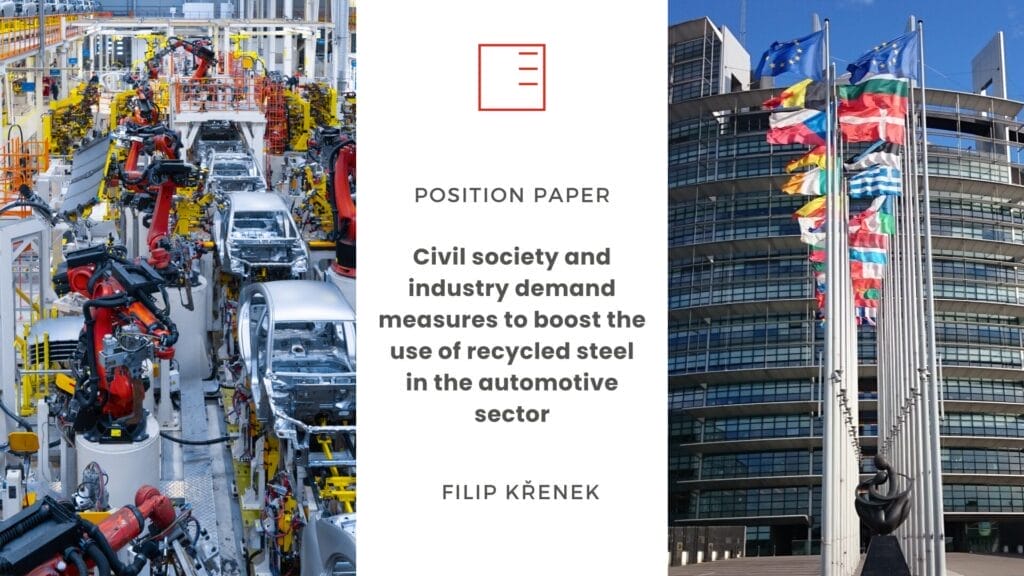
Position Paper | Civil society and industry demand measures to boost the use of recycled steel in the automotive sector
More info 21. 5. 2025
21. 5. 2025
The European automotive industry is undergoing a major transformation. As EU legislation on vehicle circularity is being updated, non-profit organisations, think tanks, and representatives of the recycling sector are calling on the European Parliament and the Council to set more ambitious targets for the use of recycled steel in car manufacturing.
The signatories of the joint statement are urging stronger measures to ensure that recycled steel becomes a standard component in automotive production.

STVR | Brussels and London are starting over
More info 19. 5. 2025
19. 5. 2025
The current shift in the international landscape and the role of the United Kingdom and the EU in it was commented on for Slovak television by EUROPEUM Institute analyst Imogen Wymer.

STVR | London has confirmed a new agreement with the EU
More info 19. 5. 2025
19. 5. 2025
The situation regarding the summit between the EU and the United Kingdom was commented on for Slovak television by Imogen Wymer, an analyst at the EUROPEUM Institute.

What's new in the European Parliament? Reflection on the plenary session
More info 12. 5. 2025
12. 5. 2025
We would like to invite you to the next in a series of debates that provide an up-to-date perspective on key topics discussed in the plenary sessions of the European Parliament. The aim of the debates is to offer a clear overview of the decisions taken and their wider impact on the European Union and the Czech Republic. Each debate will provide a space for reflection on major legislative and political steps taken by the European Parliament, direct discussion with MEPs and experts, and an open dialogue with the professional and general public.
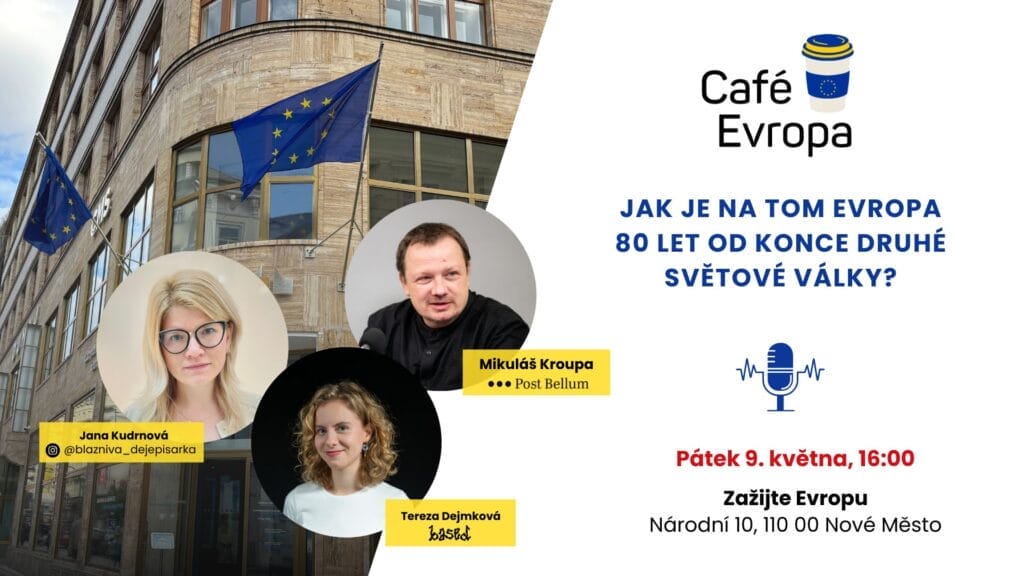
Public podcast - How is Europe 80 years on from the end of World War II?
More info 9. 5. 2025
9. 5. 2025
The Second World War was a fundamental event in the development of Europe and its current shape. But are we still aware of this today? How does the younger generation feel about the conflict, which is 80 years away this year? And do we still need to remember it?
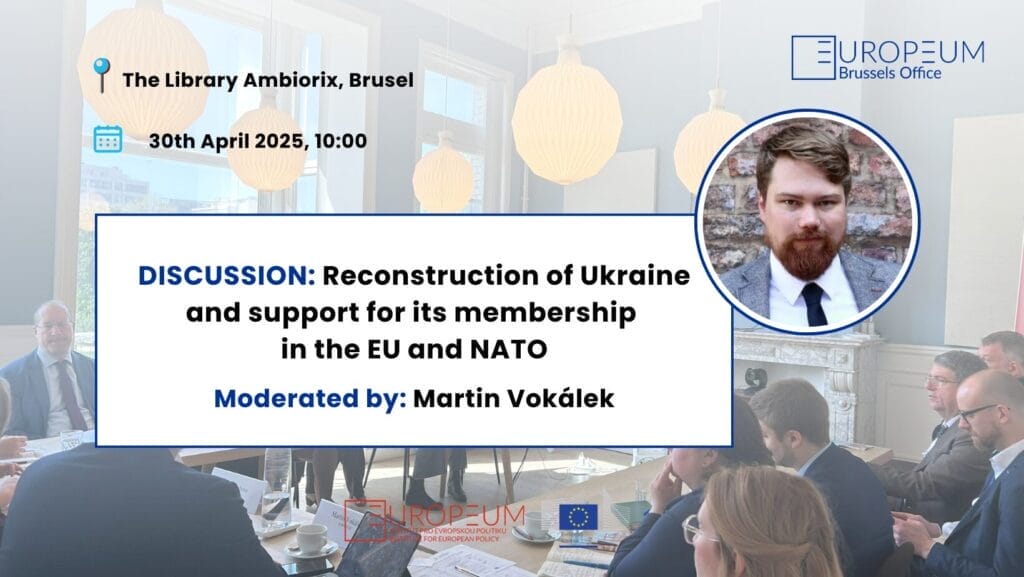
Report | Reconstruction of Ukraine and support for its membership in the EU and NATO
More info 30. 4. 2025
30. 4. 2025
The round table discussion focused on current issues of Ukraine's post-war reconstruction and its position in the European and security framework. The expert panellists debated the possibilities of providing credible security guarantees to Ukraine, the role of NATO and the EU in ensuring its long-term stability, and the challenges of its future EU membership.The discussion […]

European Thursdays in the Scout Institute
More info 24. 4. 2025
24. 4. 2025
Come join our Scout Community on the last Thursday of the month for an open discussion following Monika Ladman's presentation on “The current crisis is an opportunity to strengthen Europe”. Monika Ladmanová is the Head of the European Commission Representation in the Czech Republic and has also worked for the Czech Helsinki Committee and the Open Society Fund. She worked with European Commissioner Věra Jourová on the Directive on reconciliation of private and professional life of people caring for a close person.

Roundtable Report | Germany in Multi-Dimensional Change: Implications for Central Europe
More info 19. 4. 2025
19. 4. 2025
On April 29th, the Brussels Office of EUROPEUM, representing the Think Visegrad Platform, hosted an expert roundtable discussion entitled ‘Germany in multi-dimensional change: implications for Central Europe.’ The event took place at The Library Ambiorix, Square Ambiorix 10, under the Chatham House Rule with a participation of 14 experts. The aim of the discussion was to explore Germany’s ongoing transformation amid overlapping economic, geopolitical, and structural challenges, and their implications for broader European politics.
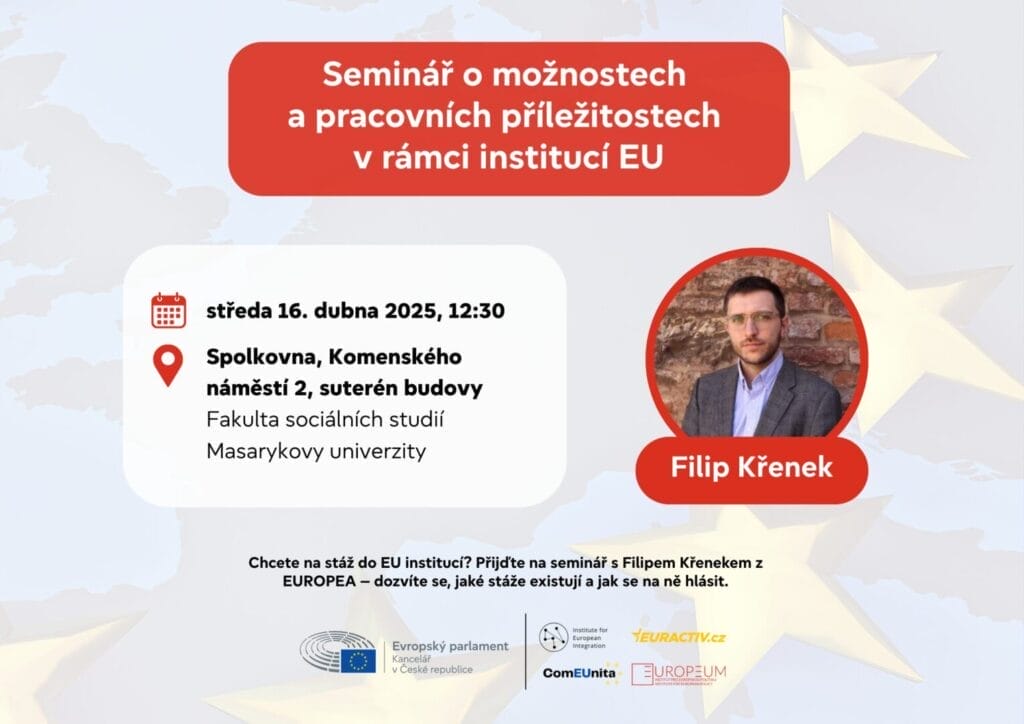
Seminar on opportunities and jobs within the EU institutions
More info 16. 4. 2025
16. 4. 2025
Considering a traineeship in the European Union institutions? Come to a practical seminar where you will learn what types of internships are offered by the European Commission, the Council of the EU, the European Parliament and individual MEPs, how to apply and what the preparation involves.

We are looking for an Event Manager
More info 10. 4. 2025
10. 4. 2025
We are looking for an Event Manager to join our international team in the Prague office. The ideal candidate should have a strong interest in European affairs and will take responsibility for organizing a significant portion of our events for both the general public and expert audiences. They will be expected to bring fresh ideas and input—both in terms of content and organization—and become fully involved in the Institute’s activities. We offer a diverse and meaningful role in a field that shapes public discussion on European issues in the Czech Republic and across Europe.
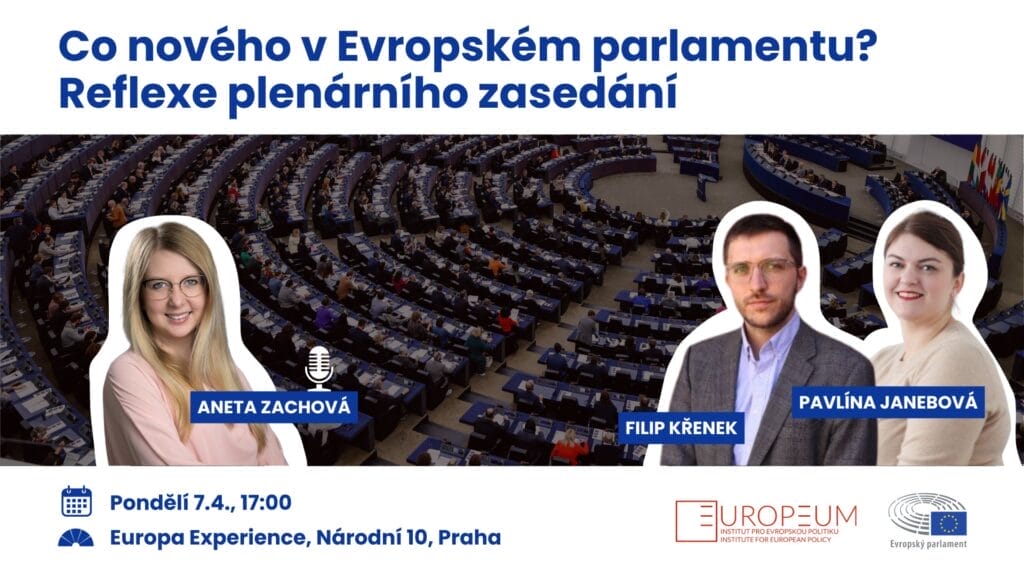
What's new in the European Parliament? Reflection on the plenary session
More info 7. 4. 2025
7. 4. 2025
We would like to invite you to the next in a series of debates that provide an up-to-date perspective on key topics discussed in the plenary sessions of the European Parliament. The aim of the debates is to offer a clear overview of the decisions taken and their wider impact on the European Union and the Czech Republic. Each debate will provide a space for reflection on major legislative and political steps taken by the European Parliament, direct discussion with MEPs and experts, and an open dialogue with the professional and general public.

Head of the Green Europe Research Program / Senior Research Fellow
More info 2. 4. 2025
2. 4. 2025
EUROPEUM Institute for European Policy is currently looking for a Head of the Green Europe Research Program, focusing on topics such as EU climate policy, industrial decarbonization, clean tech, the competitiveness of the EU and the Czech Republic, the EU’s role as a global player, just transition, climate adaptation, transport poverty, EU funds, cohesion policy, and economic security.